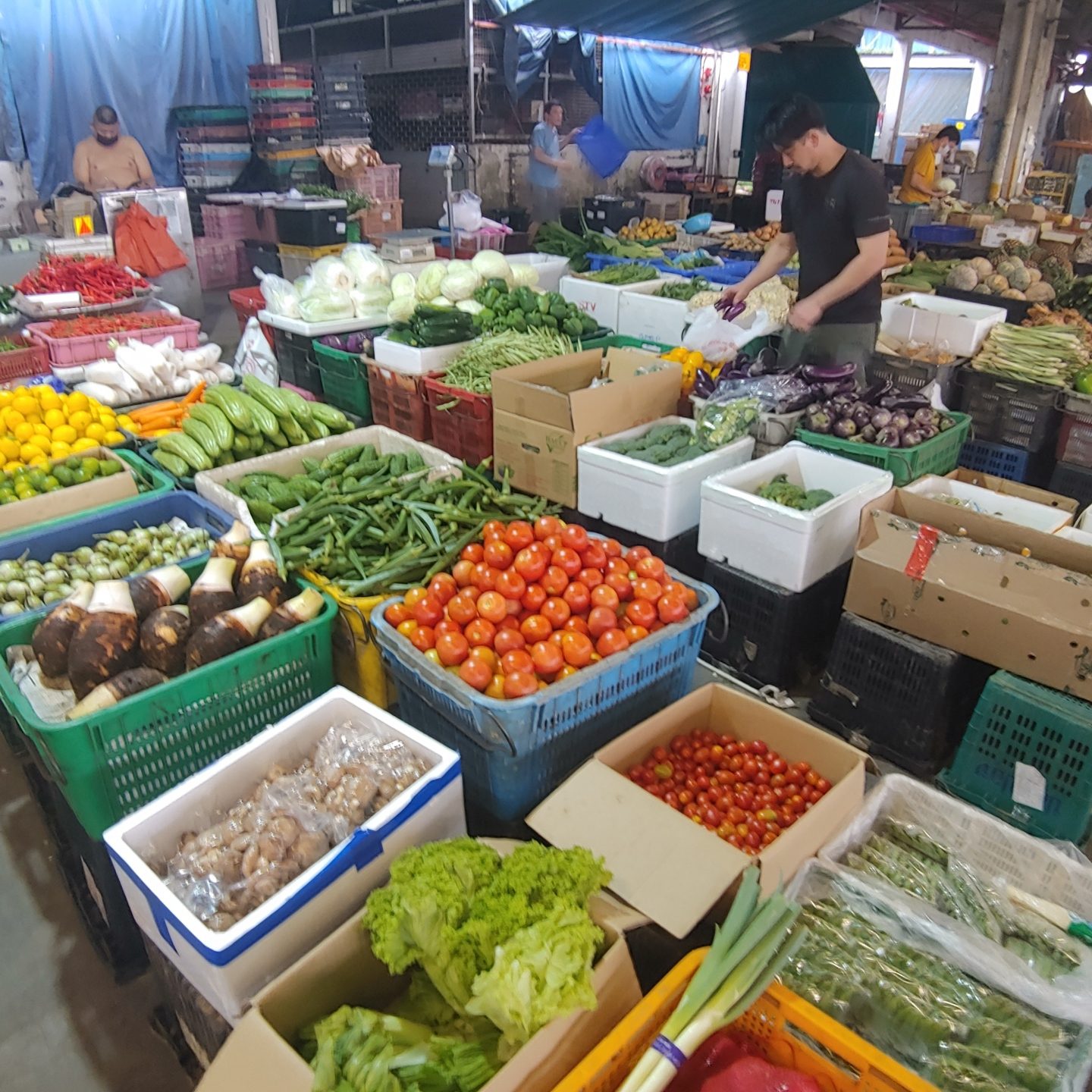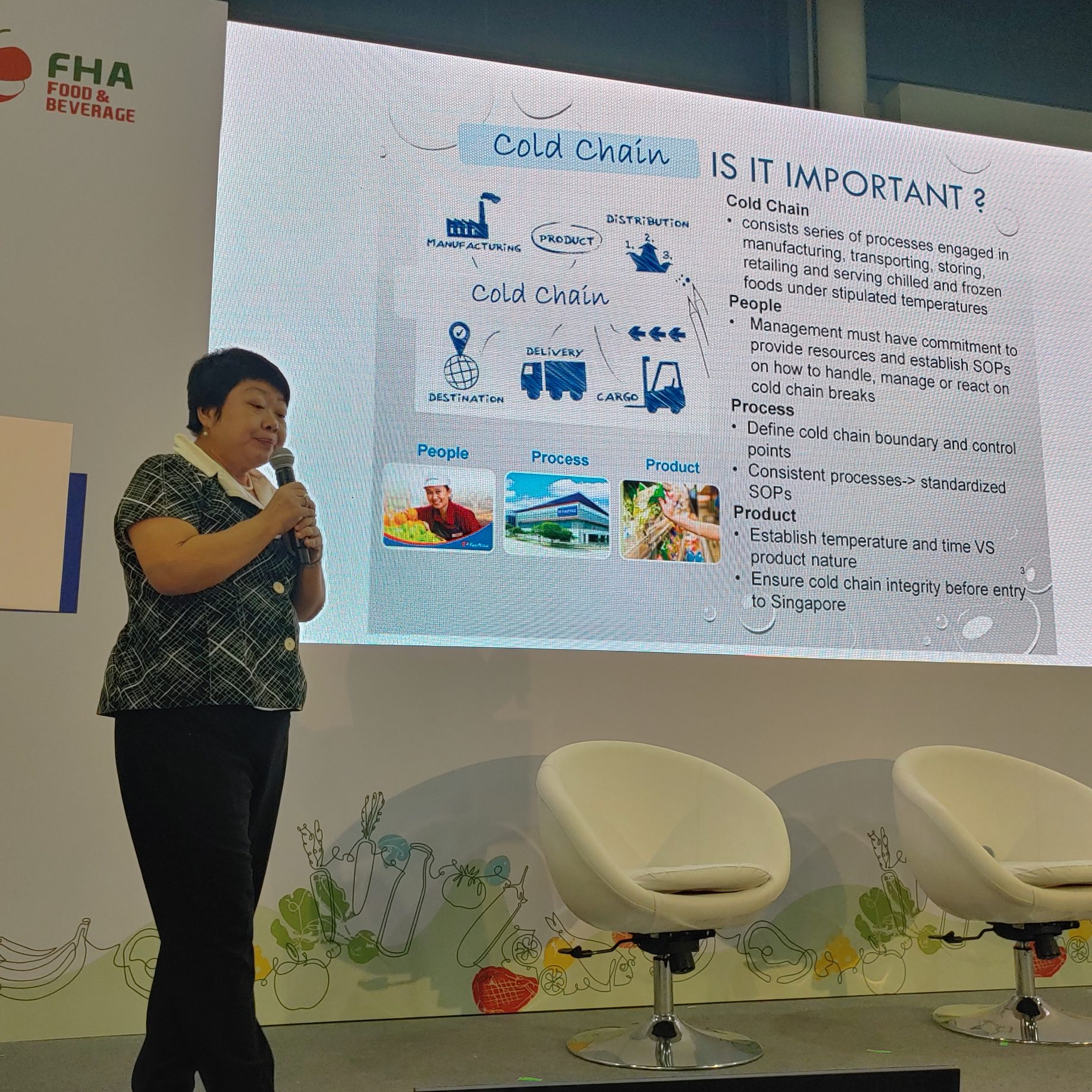New Singapore standards for cold chain management of chilled and frozen food to assure food safety and quality
The Singapore Standards Council (SSC), overseen by Enterprise Singapore (ESG), together with the Singapore Manufacturing Federation – Standards Development Organisation (SMF-SDO) and the Singapore Food Agency (SFA), have launched a new series of standards known as the “SS 668: 2020 Cold chain management of chilled and frozen foods”. This set of standards is intended to strengthen Singapore’s cold chain ecosystem, by setting out the General Requirement and Code of Practice for the management of chilled and frozen food, including pre-packaged food, meat, vegetables and fruits, fish, as well as chilled table eggs.
20% increase in cold-chain demand
The demand for chilled and frozen products is set to grow as Singaporeans continue to stay home amid the pandemic. An increase in demand was observed by major supermarkets such as NTUC FairPrice, who have observed a 20% increase in demand for frozen foods like poultry, processed food and vegetables compared to pre-pandemic demand. The new standards will help build up the cold chain capabilities of business players along the supply chain for the effective management of cold chain operations to ensure safety, freshness and quality of the products delivered to their customers.
A new standard: SS 668:2020
SS 668 will set out organisational goals, policies and technical requirements (such as the use of technologies1 to maintain a temperature-controlled environment throughout the supply chain) that are key to the cold chain management process for food products. Through the adoption of the standards, businesses can better safeguard the safety, quality and resilience of the supply of chilled and frozen food products; manage the risk of food spoilage; and facilitate the acceptance of shipments by receiving businesses. Such improvements can, in turn, generate cost savings for these businesses in the longer term. SS 668 enables the harmonisation of practices across the industry, and facilitates collaboration across the value chain. This will reinforce trust in Singapore’s food supply chain and food safety system management, allowing our logistic players to acquire a competitive edge in expanding their cold chain services globally.
Dr Tan Lee Kim, Director-General, Food Administration and Deputy Chief Executive, Singapore Food Agency, said, “Food safety is a joint responsibility. The food industry plays an important role in ensuring proper cold chain management, which is essential to safeguard product safety. Food businesses are encouraged to adopt the SS 668 as part of their best practices, which will help them better assure the safety of the products that they offer. This not only allows them to better comply with food safety regulations, but also signals their food safety commitment to consumers.”
Choy Sauw Kook, Director-General, Quality & Excellence, Enterprise Singapore, said, “SS 668 supports Singapore’s position as a global logistics hub for cold chain management by setting out industry best practices for businesses to implement proper cold chain management of chilled and frozen food products. As Singapore becomes increasingly connected with the rest of the world through trade corridors like the new International Land-Sea Trade Corridor (ILSTC), and partnerships like the New Zealand (NZ) – Singapore (SG) – European Union (EU) Transhipment protocol, providing such assurances on food quality and safety will enable businesses to better access and capture new trade flows.”
Chong Nyet Chin, Convenor of the Working Group for SS 668, and Director, Food Safety & Quality at NTUC FairPrice Co-Operative Ltd, said. “FairPrice welcomes the nation’s move towards a more sustainable food chain and eco-system through the implementation of the new integrated cold chain standards for fresh produce and packaged food items. The new standards will not only help us optimise the reliability and effectiveness of our cold chain processes, it also contributes to our sustainability goals by reducing food waste and further strengthens our commitment to providing fresh and quality food to our customers.”
Belinda Lee, 2nd Vice President, Seafood Industries Association Singapore (SIAS), said, “SS 668 will benefit all food industries, in particular SMEs, as it is easy and simple for companies to reference, and provides good guidance for those that wish to strengthen their cold chain management. The standard specifies good delivery practices and control of temperature throughout the supply chain. It would be relevant to gain overseas recognition of SS 668, so as to create opportunities and a competitive advantage for our local exporters which are certified and in compliance with the SS 668. This is a testimony of our local companies’ commitment to ensure the safe supply of chilled and frozen food and at the same time offering greater assurance to the consumers.”
Following the launch of SS 668, SMF-SDO will be working with industry players, comprising local trade associations such as the SIAS, training providers and institutes of higher learning, in late December 2021 to promote and raise awareness among food producers, manufacturers, retailers and service companies as well as logistics companies on the requirements of SS 668. The SS 668 can be purchased from the Singapore Standard eShop at www.singaporestandardseshopsg.
About Enterprise SingaporeEnterprise Singapore is the government agency championing enterprise development. We work with committed companies to build capabilities, innovate and internationalise.
We also support the growth of Singapore as a hub for global trading and startups, and build trust in Singapore’s products and services through quality and standards.
Visit www.enterprisesg.gov.sg for more information.
About Singapore Standards CouncilThe Singapore Standards Council (SSC) facilitates the development, promotion and review of Standards and Technical References in Singapore. This work is done through partnerships with the industry, academia and government organisations, under the national standardisation programme overseen by Enterprise Singapore.
About Singapore Manufacturing FederationEstablished since 1932, the Singapore Manufacturing Federation (SMF) represents the interest of the manufacturing community in Singapore, driving its competitiveness and sustainable growth through serving industry-specific needs. Supported by 10 industry groups and its Centres of Excellence, the SMF enhances the competitiveness of the manufacturing community by encouraging capacity development and capability building, innovation and productivity. SMF provides opportunities for companies to collaborate, network and to grow and expand both locally and internationally. Current membership stands at about 3,000 corporate members ranging from SMEs to MNCs. For more information, please visit www.smfederation.org.sg.
Singapore Manufacturing Federation – Standards Development OrganisationSMF-SDO is supported by Enterprise Singapore and endorsed by the Singapore Standards Council to manage the development of standards and facilitate the promotion of these standards for four Standards Committees under the Singapore Standards Council. These Standards Committees are as follows:
Biomedical & Health Standards Committee (BHSC)
Food Standards Committee (FSC)
Manufacturing Standards Committee (MSC)
Quality & Safety Standards Committee (QSSC)
About Singapore Food AgencyAs the lead agency for food-related matters, the Singapore Food Agency’s mission is to ensure and secure a supply of safe food for Singapore. SFA works hand-in-hand with the industry and consumers to grow our three “food baskets” – Diversify import sources, Grow local, and Grow overseas, as well as ensure food safety from farm-to-fork. SFA also partners food businesses to strengthen capabilities, tap on technologies to raise productivity, undertake research to develop new lines of business, and catalyse industry transformation to ensure food security.
For more information on SFA, visit www.sfa.gov.sg.
ANNEX A: Factsheet on the new SS 668: 2021 Cold Chain Management for Chilled and Frozen Food
The SS 668 is developed by the Singapore Standards Council, with support from the Singapore Manufacturing Federation – Standards Development Organisation (SMF-SDO), and in partnership with the Singapore Food Agency, Singapore Polytechnic, Republic Polytechnic, and other industry stakeholders2.
2 The other key stakeholders comprised Singapore Agro-Food Enterprises Federation, GS1 Singapore Limited, cold store and logistics companies, testing, inspection and certification bodies, food retailers, caterers and manufacturers.
3 This is under development and will be released for a 2-month public consultation window from October to December 2021. Industry stakeholders will be invited to provide their comments on the draft standard.
Cold chain management is the process to ensure that temperature-sensitive food products are maintained at correct temperature from farm to fork to ensure food safety and quality. Without proper temperature and control, harmful bacteria in food can multiply rapidly, especially when left at temperature between 5oC to 60oC, which is known as the temperature danger zone.
The SS 668 series comprised the following parts:
• Part 1 – General requirements
• Part 2 – Code of practice for meat
• Part 3 – Code of practice for vegetables and fruits
• Part 4 – Code of practice for fish
• Part 5 – Code of practice for chilled table eggs (under development)3
SS 668: Part 1 covers general requirements for cold chain management, meat, vegetables and fruits, fish and chilled table eggs. It includes the major links in the cold chain management starting from production at the farm, processing, packaging, storage, transportation and retail.
The standard also takes into consideration the activities undertaken and devices utilised for monitoring the time-temperature profile along the entire cold chain (commencing from the processing establishments, refrigerated transport/distribution containers for land and air transportation, warehouses and chillers at retail outlets), as well as the mode of handling and storage from retail outlets to consumers. Companies that intend to achieve certification to cold chain management should refer to Part 1 of the standard, which is to be read in conjunction with other parts of SS 668.
The maintenance of temperature is an integral part of cold chain management. SS 668 sets the technical requirements for cold chain operations, including the use of devices such as sensors and non-contact thermometers. These devices assist in cold chain validation, maintenance of cold room facilities (including the processing/packaging room, cold room and anteroom), transportation as well as packaging and labelling at retail outlets. Key considerations on the temperature-control requirements for cold chain management, as specified in SS 668, include:
a) Part 1: Covers organisation responsibilities, including the establishment of cold chain policy and documentation required. Includes the temperature requirements and standards references for different categories of chilled and frozen food in processing room, cold room, anteroom, during transportation and display cabinet. Organisations are also required to ensure the monitoring, measurement, analysis and evaluation of the appropriate data and information along the cold chain supply chain.
b) Part 2: Covers the major six links in the cold chain management starting from the farm, abattoir, processing/de-boning plant, transportation, retail and finally to the consumers. It is applicable to beef, mutton, pork, poultry meat and game/wild meat that are not further processed. It covers carcasses, meat parts and offal. Microbiological criteria sample plan is included in the standard as well.
c) Part 3: Covers cold chain requirements for vegetables and fruits relating to pre-harvest and harvesting practices at the farm, post-harvest preparation and minimal handling such as cutting before packaging, cold storage, transportation and distribution. The requirements seek to safeguard public health by ensuring the safety, quality and wholesomeness of these produce. It is applicable to whole, intact, minimally cut vegetables and fruits which are not further processed. It also covers whole leaf, headed and fruited vegetables, roots, herbs and fruits. The properties and recommended storage conditions for different types of vegetables and fruits are set out in the standard.
d) Part 4: Covers cold chain requirements for fish, covering post-harvest handling, icing/chilling, cutting, filleting, quick-freezing, before packing, cold storage, transportation and distribution. It includes microbiological guidelines for chilled and frozen raw fish.
As consumers are becoming increasingly concerned about the safety and quality of food, standards like SS 668 is an important way to assure consumers. In addition, independent assurance in the forms of certification and accreditation plays a crucial role in demonstrating that food products meet applicable standards. The Singapore Accreditation Council (SAC), which is overseen by ESG, is in the midst of developing a new accreditation programme for cold chain management certification based on the new SS 668. The accreditation programme will validate that the certification of the cold chain management systems are carried out properly, so that consumers can be assured of the quality of chilled and frozen food products in the market.





